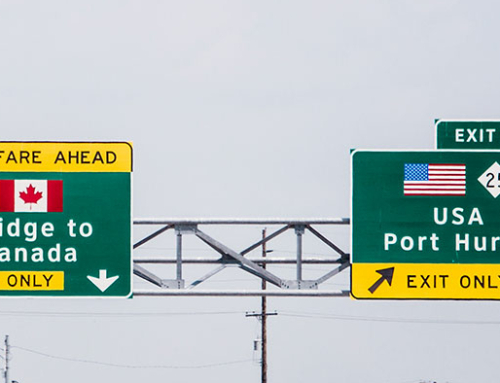David was interviewed by Sharon Singleton of QMI Agency for Sun Media. The article appeared in the Toronto Sun, Calgary Sun, on Canoe.ca and many other news outlets and law and tax websites.
U.S. property investment pitfalls easy to overcome
Sun Media
Sharon Singleton, QMI Agency
November 10, 2011
A growing number of Canadians are tempted by property bargains in the U.S., but are being put off by bad information about the possible tax pitfalls, according to David Altro, a lawyer and author of a book on the subject.
The baby boomer generation is looking for a warm place to retire and being lured by property at bargain-basement levels, making Canadians the biggest foreign investors in U.S. real estate.
“I wrote this book because there is a lot of mis-information out there for Canadians wanting to buy or move to the U.S.,” Altro said, whose Owning U.S. Property The Canadian Way is now into its second edition.
Much of it revolves around the potential tax bill and bureaucratic headaches for family members trying to sort out the estate upon the death of the property owner.
Altro said a lot of these problems can be avoided completely by setting up an irrevocable cross-border trust. That will help provide protection from creditors for your children and get around expensive U.S. laws on probate.
Similarly, placing your property in a trust is also beneficial if either you or your spouse becomes incapacitated. Under U.S. law, if one person becomes incapacitated the property can effectively be frozen and will require a series of costly headaches to un-freeze.
“A trust can’t become incapacitated,” Altro said.
Many property advisers recommend setting up a corporation to hold and manage U.S. property assets, though Altro said that is not tax effective.
Capital gains on a cross-border trust are taxed at about 15%, compared with a rate of more than 40% for corporations in Florida.
Although there are fees involved with setting up such a trust, Altro says “they are very small” compared with the costs of a potential tax bill or legal help to sort out problems once they have occurred.
There may be another upside for Canadians wanting to buy U.S. property. If they choose to become U.S. residents their income tax bills will drop substantially. Altro said the maximum U.S. income tax is 35% and that kicks in on earnings of more than $375,000. In Canada, the high rate is 46% on income of more than $125,000.
But for many that requires obtaining an elusive Green Card. A bill put forward by two U.S. senators eager to promote further investment in the country’s sagging real estate market may put a visa within reach.
The bipartisan proposal put forward last month would grant a visa to foreigners spending at least $500,000 on residential property.
Residential sales of U.S. properties to foreigners and recent immigrants totalled $82 billion in the 12-month period ended March 31, up from $66 billion the previous year, according to the National Association of Realtors. California accounted for 12% of those sales, second only to Florida.








